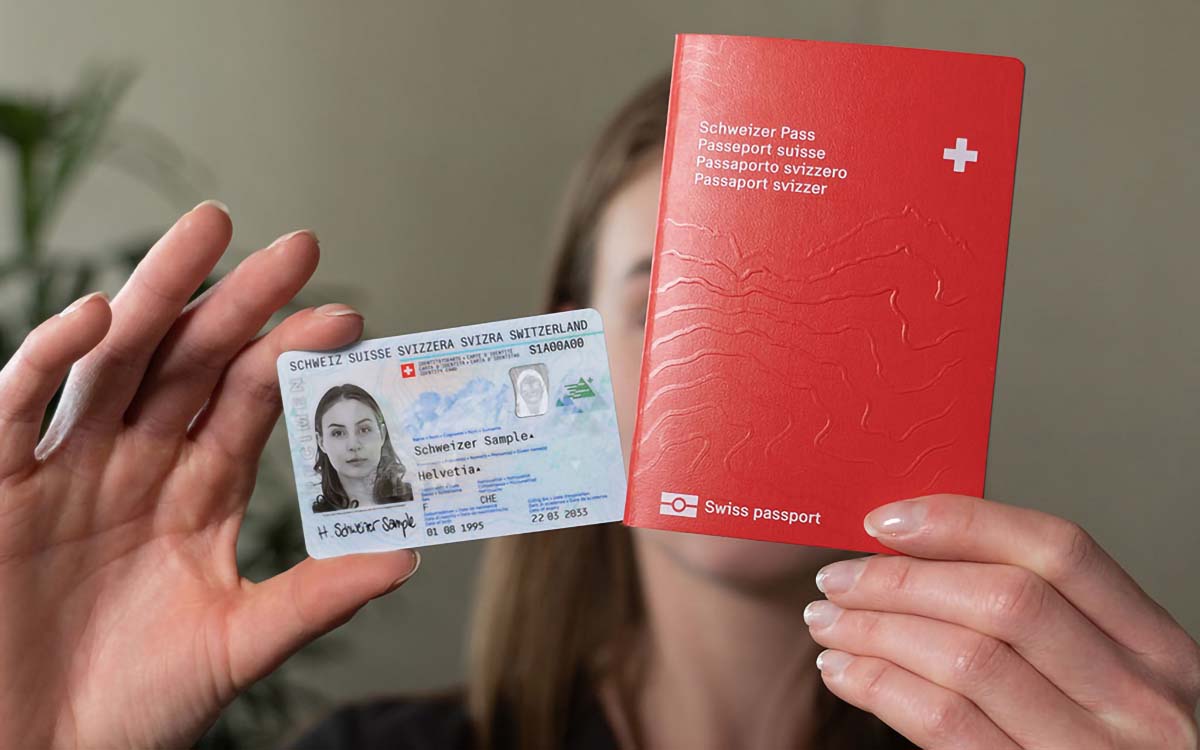Biometric Swiss identity card under development
Post on: 02.07.2025

The Swiss Federal Police (fedpol), in close cooperation with federal and cantonal partners, is working on the creation of the first Swiss biometric identity card. The new document will be equipped with a microchip containing biometric data, as is already the case for the biometric passport, thus offering higher protection against fraud and forgery attempts. It is expected to enter into force indicatively by the end of 2026 or the beginning of 2027. In any case, the possibility of requesting a non-biometric version for internal use in Switzerland will remain available.
Increased security thanks to biometric technology
Ensuring secure identity documents that are difficult to falsify is essential to combat identity theft and misuse. Just like banknotes, official documents need to be constantly updated technologically. The future biometric ID card will include two fingerprints and a facial image stored in a microchip, just like the current Swiss biometric passport.
Biometric data protection
Biometric data will be protected by strict security measures. Reading will only be possible when the card is physically presented, preventing any unauthorized remote access. In addition, Switzerland will limit access to fingerprints to only those countries that meet data protection standards equivalent to those in Switzerland.
Swiss Biometric Identity Card | Easier travel in the EU
In 2019, the European Parliament and the Council of the European Union introduced an obligation for Member States to issue only biometric identity cards from 2021. This issue has also been addressed in the negotiations with the European Union, which have since been concluded.
Switzerland plans to introduce the biometric identity card between the end of 2026 and the beginning of 2027, at the latest within one year of the entry into force of the revised Agreement on the Free Movement of Persons. Non-biometric cards issued before that deadline will continue to be valid for entry into the EU until they expire (maximum ten years for adults). For example, if the agreement were to come into force in 2027, cards issued by 2028 would be valid for travel within the EU until 2038. Non-biometric cards issued after this date will no longer allow entry into EU countries.
Free and personalized choice
The Swiss Identity Documents Act guarantees all citizens the opportunity to choose whether to apply for an identity card with or without a biometric microchip.
- < li>For regular travellers in the EU, the biometric version is recommended, which will facilitate checks and ensure compliance with European standards.
- For those who only use the card in Switzerland, the non-biometric version will suffice.
This dual option system allows flexible adaptation to the individual needs of the population. More information on the differences between the two types of ID cards can be found, along with an explanatory video, on the official website www.passaportosvizzero.ch.
Cookies & Privacy
Utilizziamo i cookie per offrirti la miglior esperienza possibile sul nostro sito Web.
Accetta e continua Continua senza accettare
Per maggiori informazioni leggi la nostra Privacy Policy





